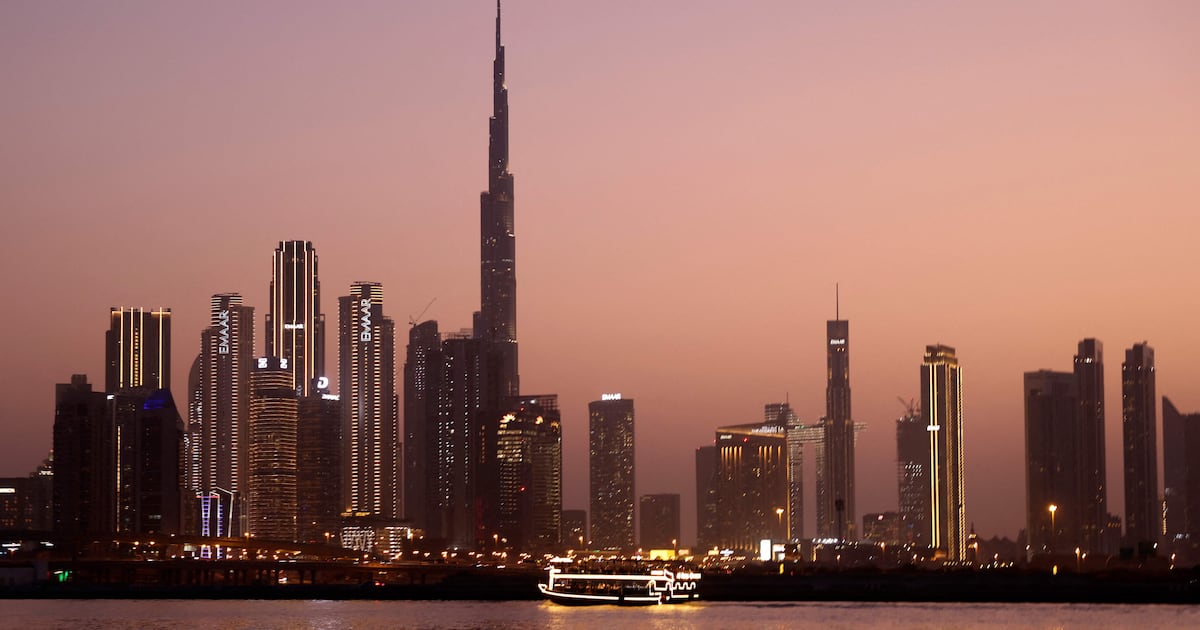The UAE economy is projected to outperform the global average this year as it is expected to remain resilient to uncertainty in the global economy, the International Monetary Fund (IMF) said on Thursday at the conclusion of its Article IV consultation with the Emirates.
The IMF projects the UAE’s gross domestic product (GDP) to expand at a 4.8 per cent pace this year, driven by strong non-hydrocarbon growth and Opec production increases before expanding at a further 5 per cent rate in 2026.
The fund’s growth projection is slightly below the UAE Central Bank’s forecast for this year – which was released last week – of 4.9 per cent.
The UAE last month announced the launch of a strategy to boost its economy by Dh30 billion ($8.16 billion) a year. The strategy, called the National Policy for Economy Clusters, will see the UAE aim to boost foreign trade by Dh15 billion over the next seven years. The launch of the strategy comes off the back of Comprehensive Economic Partnership Agreements (Cepas) it has made to boost trade ties with countries including Jordan, New Zealand and Angola.
Cepas the UAE had made with Australia and Malaysia began to take effect on Wednesday.
“Ongoing efforts to expand Comprehensive Economic Partnership Agreements will further bolster resilience and support diversification, while financial markets and capital flows continue to demonstrate resilience to global shocks, reflecting strong investor confidence,” said Said Bakhache, the IMF mission chief to the UAE.
The UAE’s inflation rate is projected at 1.6 per cent this year and about 2 per cent over the medium term. However, the fund noted housing costs are expected to remain the primary source of price pressures in the UAE, which it said raises concerns over affordability.
The IMF also said the UAE’s financial sector remains strong and that banks remain profitable. UAE Central Bank data showed bank deposits increased by more than 13 per cent on an annual basis in the second quarter, with lending up 11 per cent.
The fund also said the UAE’s enhancements to its Dirham Monetary Framework were also welcome and are helping improve liquidity management.
The IMF’s staff mission comes as the UAE continues to pursue its efforts to diversify away from oil. Part of this strategy has been the Emirates becoming a global hub for artificial intelligence, which has included a push to establish start-ups, as well as investments and partnerships from leaders in the industry including Mirosoft, Nvidia and OpenAI
“The UAE’s rapid emergence as a global AI hub offers significant opportunities,” Mr Bakhache said.
Gulf Co-operation Council
The UAE’s economic strength this year reflects the broader resilience displayed by Gulf Co-operation Council (GCC) amid US President Donald Trump’s shifting tariff strategies, which have dominated conversations around the global economic outlook.
Speaking at the GCC Ministerial Meeting in Kuwait, IMF managing director Kristalina Georgieva credit the region’s central bankers and finance ministers implementing reforms for its stability during the sharp change in global trade policy.
“Despite this increasingly challenging environment, the GCC continues to deliver strong and steady performance and is still a bright spot in the world economy,” Ms Georgieva said.
“It is making the GCC more resilient, as evidenced by limited spillovers from tensions and conflicts in the region.”
Ms Georgieva added the IMF forecasts GCC growth to be between 3 and 2.5 per cent this year before expanding closer to 4 per cent in 2026 due to the strength of the non-hydrocarbon economy, unwinding of voluntary oil production cuts and expansion of natural gas production.
She cautioned that weaker oil demand could negatively impact oil prices and revenue, while a potential supply glut could emerge as Opec continues to unwind oil production amid weak demand.
The IMF chief said the fund said non-hydrocarbon GDP growth in the GCC could slow by 1.3 percentage points in a scenario in which oil prices temporarily fall to $40 a barrel.
The IMF is due to release its projections on the global economy during its annual meetings in Washington later this month.
